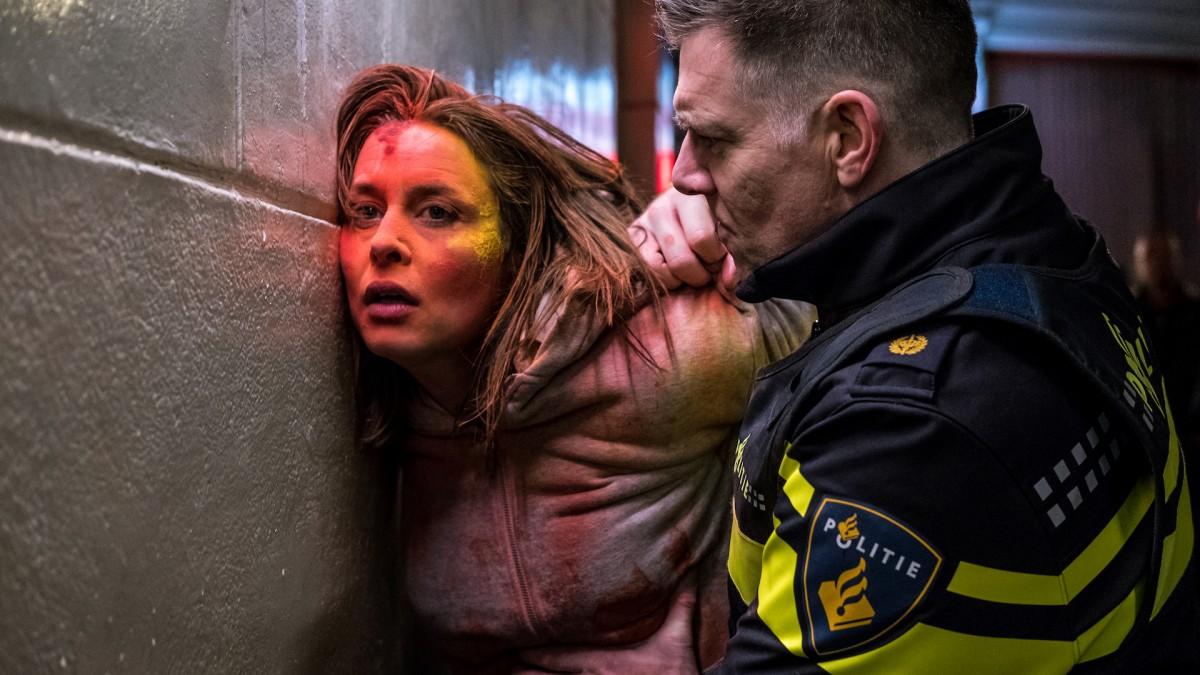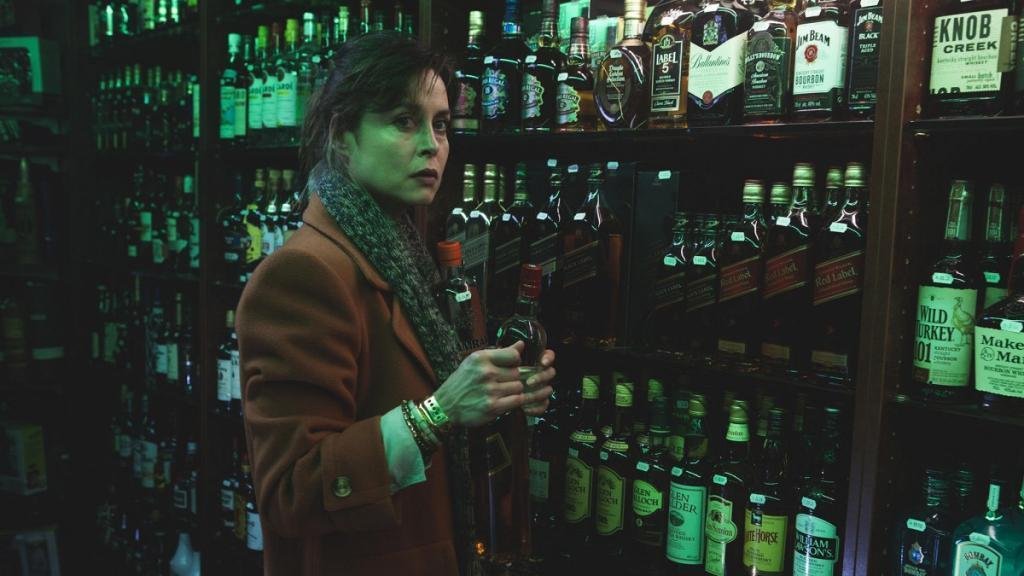
Lennert Hillege and Guido van Driel‘s slow-burn character study in this year’s release, Bloody Marie, is undoubtedly carried by a mesmeric performance from actress Susanne Wolff. That her portrayal takes you away from the film’s underlying m.o. is worth noting to its credit, gazing as she follows a path of unraveling and often uncouth, cyclical descent into drunken stupor.
It’s been six years since the success of her debut novel and her life in Amsterdam’s red-light district has now become an empty void, filled with various brands of alcohol and wine coolers in place of where her creativity used to be. And that’s pretty much the way it’s been and still is, going forward, whilst living hermitically in the confines of her drab, hushed and darkly lit apartment.
Her own solitude notwithstanding, the only things that keep her company next to her dog, Lietze, is the quiet, nightmaring regret stemming from the recent passing of her mother, and her seeming depression and paranoia, coupled with the peculiarly noisy goings-on with her next door. She meets Dragonir who lets her take a swig of his drink one evening in exchange for her red shoes, and it’s the first she sees of him out of several times after, drawing her closer to a more horrible truth about her new acquaintant.
Her second favorite place is the contiguous set of rooftops of her building wherein she treads one evening, inebrieated, and reaches into her neighbor’s window, cleverly stealing a wad of cash. As usual as all things are, it’s only a matter of time before her actions come full circle, culminating into a decisive turn of events – one of mind games, chilling revelations, violence and, ultimately, introspective growth.
Between Marie’s low-lit apartment and Amsterdam’s bustling and luminous nightlife, Hillege and van Driel take viewers on an immersive odyssey between the two states of mind our protagonist resides in. It’s a point of interpretation in understanding the psychological roots of a person who endures pain of some kind and the vices they take on; Marie’s alcoholic addiction is the result of the creative bloc that’s suddenly taken effect, inducing her depression further in congruence with her environment – something which she hints at in a conversation about her late mother with another supporting character named Oscar.
Her social travails aren’t always negative, for that matter, and her moral compass isn’t entirely crooked. Her flaws and actions never fully dictate her character, and her choices later in the second half of the film invokes this finer point astutely with gusto. The tie-in to the film’s more fundemental arc isn’t made that obvious, though if you’re mindful of the first scene and Lietze’s demeanor, the congruence of it all is made more clearer and resonant. Hillege and van Driel’s use of artistic imagery transitioning between acts add to the heed of Marie’s evolution throughout the story, right down to the moment where her concern for the welfare of her neighbor suddenly finds her within arms reach of a sinister pimp and his paunchy, sickly boss.
Bloody Marie‘s messaging is well orchestrated in its intent, brilliantly invoked by Wolff in her lead performance with a story that bodes far less commercial in its narrative. At its forefront, Hillege and van Driel craft a winsome, taut crime thriller in Bloody Marie that reminds its viewers to look ardently past the material trivialities of life, as it could mean the difference between a fate worse than death, and one of healing. I think I’ll drink to that.

